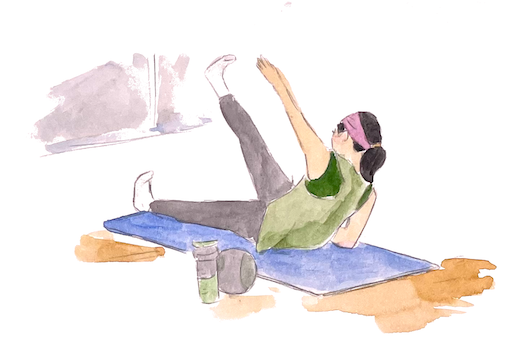Healthy cooking tips for the person who doesn’t have the energy to cook
|
Dear Reader, Does cooking stress you out? Let’s face it– even if you love cooking, sometimes cooking is a chore. After working for 8 hours, the last thing we want to do is be on our feet, sweaty, and then think about having to do the dishes afterwards. This is why I’ve adopted Zen principles to my cooking philosophy. A major tenet of Zen is on letting go of what generates stress and to instead bring in elements that make us feel at peace. A part of this is building a natural flow to our thoughts and actions, and priming ourselves for a calm mindset, working within the guidelines of simplicity. So instead of trudging through the drudgery of cooking for yourself, here are some of my favorite tips on how to make it a more pleasant and sustainable daily habit. Zen cooking tips for the person who doesn’t have the energy to cook 1. "When you’re hungry, no matter how ‘easy’ something is to cook, it takes too long to make.” Cooking when you’re already hungry primes us for scarfing things down, feeling exhausted, and then hating the overall process. When we cook when we’re satiated, we’re much more likely to eat in moderation, eat slower, and also just enjoy the process of cooking. So cook before you’re hungry, but if you’re already hungry, feel free to snack on something! Grapes, blueberries, nuts, yogurt, toast, or even cookies – don’t go overboard (you still need to eat dinner) but your body is telling you something, and it’s okay to trust it. Help yourself enter a calmer mindset. 2. Skip the knife There’s a learning curve to cooking. The more you do it, the easier and more fun it becomes, but if you’re new to it– for example, you don’t feel comfortable around a knife– then the effort to upskill can be overwhelming. So skip the more intimidating elements of cooking, like chopping and dicing. You can use frozen vegetables or canned ones, or pre-cut and sliced vegetables. You can also choose to use vegetables that don’t require a knife to prepare– like cabbage (rip it), chives (use scissors), or radish (grate it). Cooking shortcuts won’t make a meal any less healthy or less tasty. 3. Skip the meat Environmental or ethical concerns aside, cooking meat takes skill and effort. There is the importance of fully cooking it through, but it also runs the risk of overcooking that beginner chefs often struggle with– “How do I make sure my chicken breast is tender without getting salmonella?” My advice is skip it altogether. There are plenty of protein options that are filling and healthy, and you won’t have to worry about overcooking. My favorites are eggs, canned tuna or sardines, tofu, and edamame. And to get you started, here's a quick recipe that I love, that follows the advice above: Easy cabbage and sardine olive oil pasta (2 servings) Ingredients:
Instructions:
Note: Something I particularly like about this recipe is that dried pasta and tinned sardines rarely expire, and cabbage has a relatively long shelf life. So I can always have these ingredients at home without worrying about it going to waste! Simple is often best When it comes to health, simplicity is best– it keeps us accountable, it keeps us motivated, and helps us create habits that feel as natural as brushing our teeth or combing our hair. So if you’re looking to cook healthier but aren’t sure where to begin, start with what you know, what you like, and most importantly, start the cooking before you get too hungry 😊 Warmly, Kaki Thanks for reading! If you enjoyed this, please forward this email to your friends and family (or share the article) 🌱 If this email was forwarded to you, it's nice to meet you 😊
Follow on Instagram for more health tips, tricks, and inspiration: |
Hi, I'm Kaki!
I teach about health inspired by simple Japanese philosophies and lifestyle practices, so you can learn to find peace, fulfillment, strength, and health in your own body. Sign up for my newsletter to receive all my writing and exclusive resources!
Dear Reader, It's February! I kind of love February, even though it's still too cold and gets dark too early to do much. It means I have more time to myself, which is a cherished kind of time for me these days. But the thing about February is it's just about the time when I'm shown (possibly harsh) truths about any goals I had set for myself at the end of last year. Am I making progress? Have I hit any of my goals? Does quitting make me a failure? I believe challenging yourself is a kind of...
Dear Reader, I'm not sure where you might be right now, but where I am it's so COLD To be precise, it's a high of -8°C/18°F or a "feels like" temperature of -12°C/10°F considering windchill. It also gets dark at 5pm. 😥 On days like this, there's nothing I'd rather do than make a cup of hot tea, curl up under my heated blanket, and lie down on the couch to read. Which is what I did do this weekend, but before I let myself get bundled up and settled in, there was a question I needed to sort out...
Dear Reader, Is it too late to wish someone Happy New Year? Regardless, Happy New Year! I'm so glad you're here with me in 2026 🥳 I had a very restful break surrounded by loved ones, great food, and experiences that helped remind me what I really value in life (which are often simple things). But now I'm getting back into it! I went for a first prayer (hatsumode - 初詣) at Meiji Shrine. Year of the horse! 20 minutes a day for a more well-rounded me I ended my last newsletter lightly touching on...
